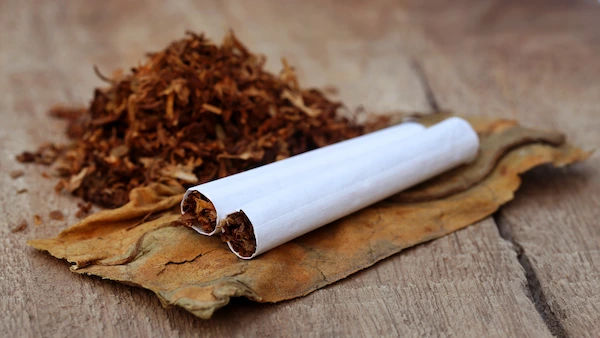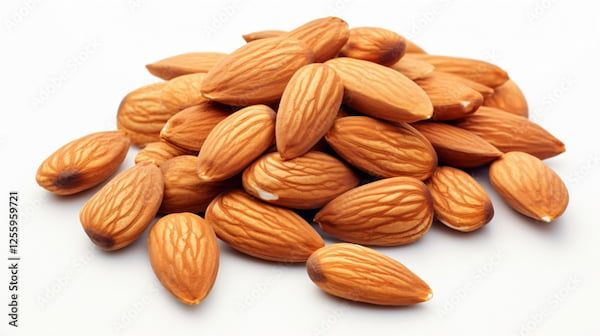Vitamin E Deficiency and Its Impact on Skin
Know why vitamin E is important, how it helps in keeping skin healthy, causes and symptoms of deficiency. Learn about improving vitamin E levels naturally through natural foods.

Written by Dr. Siri Nallapu
Reviewed by Dr. J T Hema Pratima MBBS, Fellowship in Diabetes Mellitus
Last updated on 13th Jan, 2026

Introduction
Vitamin E is a powerful antioxidant that plays a crucial role in maintaining healthy skin. A deficiency in this essential nutrient can lead to various skin problems, making it important to recognise the signs early and take corrective measures.
In this article, we’ll explore how vitamin E deficiency affects the skin, its symptoms, causes, and ways to restore healthy levels for glowing, resilient skin.
What is Vitamin E and Why is it Important for Skin?
Vitamin E is a fat-soluble vitamin that acts as an antioxidant, protecting skin cells from damage caused by free radicals (unstable molecules from pollution, UV rays, and stress). It also helps in:
Moisturising the skin – Keeps it soft and hydrated.
Healing wounds – Supports skin repair and reduces scarring.
Reducing inflammation – Helps with conditions like eczema and psoriasis.
Preventing premature ageing – Fights wrinkles and fine lines.
When the body lacks enough vitamin E, the skin becomes more vulnerable to damage, dryness, and infections.
Consult a Dermatologist for Personalised Advice
Symptoms of Vitamin E Deficiency on Skin
If you're not getting enough vitamin E, your skin may show the following signs:
1. Dry, Flaky Skin – Vitamin E helps retain moisture, so a deficiency can lead to rough, peeling skin.
2. Slow Wound Healing – Cuts, burns, or bruises may take longer to heal.
3. Hyperpigmentation – Dark spots or patches may appear due to oxidative stress.
4. Increased Sensitivity – Skin may become more prone to irritation, redness, and rashes.
5. Premature Ageing – Fine lines, wrinkles, and sagging skin may develop earlier than usual.
6. Eczema-like Rashes – Dry, itchy patches may form, resembling eczema.
What Causes Vitamin E Deficiency?
Vitamin E deficiency is rare but can occur due to:
Poor Diet – Not consuming enough nuts, seeds, leafy greens, and vegetable oils.
Digestive Disorders – Conditions like Crohn’s disease or celiac disease can impair vitamin E absorption.
Liver or Gallbladder Issues – These organs help digest fats, which are necessary for vitamin E absorption.
Genetic Disorders – Some rare conditions (like ataxia with vitamin E deficiency) prevent proper vitamin E utilisation.
Premature Birth – Babies born early often have low vitamin E stores.
How to Improve Vitamin E Levels for Healthy Skin?
1. Eat Vitamin E-Rich Foods
The best way to boost vitamin E is through a balanced diet. Include:
Nuts & Seeds – Almonds, sunflower seeds, hazelnuts.
Vegetable Oils – Sunflower, wheat germ, and olive oil.
Leafy Greens – Spinach, kale, and Swiss chard.
Fortified Foods – Some cereals and dairy alternatives contain added vitamin E.
2. Use Vitamin E-Enriched Skincare
Applying vitamin E topically can help:
Moisturisers & Serums – Look for products containing tocopherol (a form of vitamin E).
Natural Oils – Almond oil or wheat germ oil can be applied directly to dry patches.
3. Consider Supplements (If Needed)
If dietary changes aren’t enough, a doctor may recommend vitamin E supplements. However, excessive intake can be harmful, so always consult a healthcare provider before starting supplements.
4. Protect Your Skin from Damage
Wear Sunscreen – UV rays deplete antioxidants, including vitamin E.
Avoid Harsh Chemicals – Use gentle cleansers to prevent stripping natural oils.
When to See a Doctor?
If you experience persistent skin issues despite dietary changes, consult a doctor. They may recommend:
Blood Tests – To check vitamin E levels.
Underlying Condition Screening – If malabsorption is suspected.
Final Thoughts
Vitamin E is vital for maintaining soft, youthful, and resilient skin. A deficiency can lead to dryness, slow healing, and premature ageing. By eating a balanced diet, using nourishing skincare, and protecting your skin from damage, you can keep your vitamin E levels in check.
Consult a Dermatologist for Personalised Advice
Consult a Dermatologist for Personalised Advice

Dr. Sonal Jain
Dermatologist
9 Years • MBBS, MD Dermatology, Venerology & Leprosy
Kolkata
MCR SUPER SPECIALITY POLY CLINIC & PATHOLOGY, Kolkata
(25+ Patients)

Dr. Kaushiki Hajra
Dermatologist
5 Years • MBBS, MD Dermatology, Venerology & Leprosy
Kolkata
MCR SUPER SPECIALITY POLY CLINIC & PATHOLOGY, Kolkata

Dr. Somshukla Ray
Dermatologist
10 Years • MBBS, MD (Dermatology,Venerology & Leprosy), DNB (Dermatology,Venerology & Leprosy)
Kolkata
MCR SUPER SPECIALITY POLY CLINIC & PATHOLOGY, Kolkata

Dr Madhu R
Dermatologist
5 Years • MBBS, MD, DNB (Dermatology), STD specialist, Cosmetologist, Dermatosurgeon
Bengaluru
Apollo Medical Center, Marathahalli, Bengaluru

Dr. Sonal Jain
Dermatologist
9 Years • MBBS, MD (Skin & VD), DNB (DVL), Fellowship in Dermato Surgery
East Midnapore
VIVEKANANDA SEBA SADAN, East Midnapore




